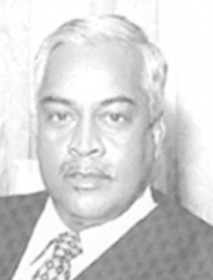Attorney General Charles Ramson says reforms in the justice sector are moving slowly, but predicts the project could finish later this year, months ahead of the revised time limit.

“There is movement, albeit a little slowly, but this is Guyana,” Ramson said on Wednesday, noting that an extension was recently granted for the programme to be completed by March 2011. However, he said the necessary reforms could be in place by the third quarter of this year.
Ramson said government met the conditionalities for the loan driving the Justice Sector Modernization programme four months ago and the first tranche was released by the Inter-American Development Bank (IDB). He noted that the IDB is sedulously overlooking what is happening within the project, observing that this is expected.
He said the final and second tranche would be disbursed when the IDB is satisfied that government has met all the requirements which include passing legislation, training, integrating the chambers of Director of Public Prosecutions (DPP) office with police prosecutors and revamping the prison system. Ramson stressed that reforms are across the board and as result, multi-sectoral.
Ramson noted that the Ministries of Home Affairs; Finance and Legal Affairs are involved in the project. He disclosed that on Tuesday a meeting was held with the Cabinet Secretary on the Judicial Service Commission (JSC) Bill given that there is a move to have the JSC embodied in a secretariat. He said that while some people have the energy, drive and commitment to move the reform project forward others in the system “don’t seem to have the parallel components”.
The AG was asked about judicial vacancies, which is a component of the reform project, and he said there is always a need for additional judges. However, he believes the real problem lies with the quality of judges currently serving the country. According to him, some of the judges go on the bench to learn “how to be a judge”.
Still on the subject, he said experience is critical to the work of a judge. He continued that the post of AG has been traditionally offered to practitioners with many years of experience. “…Maybe that is why they sent for me again, they were many contenders or pretenders; I thought one of them would have been the new AG,” Ramson said.
The case backlog in the system also remains an issue, but the reform project is expected to undertake a study to determine the exact quantum of the backlog in assessing the way forward in eliminating it. The reform project is divided into two components; a High court component headed by Lisa Ramotar and falls under the supervision of the Chancellor (ag) and a Ministry of Legal Affairs component headed by former appeal judge Claudette Singh under the supervision of the AG.





